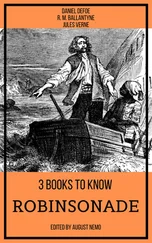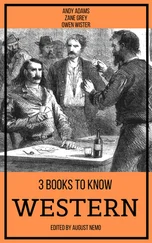When all had partaken of the royal banquet, King Arthur bade Sir Galahad come with him to the river's brink; and showing him the floating stone with the sword thrust through it, told him how his knights had failed to draw forth the sword. "Sir," said Galahad, "it is no marvel that they failed, for the adventure was meant for me, as my empty scabbard shows." So saying, lightly he drew the sword from the heart of the stone, and lightly he slid it into the scabbard at his side. While all yet wondered at this adventure of the sword, there came riding to them a lady on a white palfrey who, saluting King Arthur, said: "Sir King, Nacien the hermit sends thee word that this day shall great honour be shown to thee and all thine house; for the Holy Grail shall appear in thy hall, and thou and all thy fellowship shall be fed therefrom." And to Launcelot she said: "Sir Knight, thou hast ever been the best knight of all the world; but another has come to whom thou must yield precedence." Then Launcelot answered humbly: "I know well I was never the best." "Ay, of a truth thou wast and art still, of sinful men," said she, and rode away before any could question her further.
So, that evening, when all were gathered about the Round Table, each knight in his own siege, suddenly there was heard a crash of thunder, so mighty that the hall trembled, and there flashed into the hall a sun-beam, brighter far than any that had ever before been seen; and then, draped all in white samite, there glided through the air what none might see, yet what all knew to be the Holy Grail. And all the air was filled with sweet odours, and on every one was shed a light in which he looked fairer and nobler than ever before. So they sat in an amazed silence, till presently King Arthur rose and gave thanks to God for the grace given to him and to his court. Then up sprang Sir Gawain and made his avow to follow for a year and a day the Quest of the Holy Grail, if perchance he might be granted the vision of it. Immediately other of the knights followed his example, binding themselves to the Quest of the Holy Grail until, in all, one hundred and fifty had vowed themselves to the adventure.
Then was King Arthur grieved, for he foresaw the ruin of his noble Order. And turning to Sir Gawain, he said: "Nephew ye have done ill, for through you I am bereft of the noblest company of knights that ever brought honour to any realm in Christendom. Well I know that never again shall all of you gather in this hall, and it grieves me to lose men I have loved as my life and through whom I have won peace and righteousness for all my realm." So the King mourned and his knights with him, but their oaths they could not recall.

HOW SIR GALAHAD WON THE RED-CROSS SHIELD
––––––––
GREAT WOE WAS THERE in Camelot next day when, after worship in the Cathedral, the knights who had vowed themselves to the Quest of the Holy Grail got to horse and rode away. A goodly company it was that passed through the streets, the townfolk weeping to see them go; Sir Launcelot du Lac and his kin, Sir Galahad of whom all expected great deeds, Sir Bors and Sir Percivale, and many another scarcely less famed than they. So they rode together that day to the Castle of Vagon, where they were entertained right hospitably, and the next day they separated, each to ride his own way and see what adventures should befall him.
So it came to pass that, after four days' ride, Sir Galahad reached an abbey. Now Sir Galahad was still clothed in red armour as when he came to the King's court, and by his side hung the wondrous sword; but he was without a shield. They of the abbey received him right heartily, as also did the brave King Bagdemagus, Knight of the Round Table, who was resting there. When they had greeted each other, Sir Galahad asked King Bagdemagus what adventure had brought him there. "Sir," said Bagdemagus, "I was told that in this abbey was preserved a wondrous shield which none but the best knight in the world might bear without grievous harm to himself. And though I know well that there are better knights than I, to-morrow I purpose to make the attempt. But, I pray you, bide at this monastery awhile until you hear from me; and if I fail, do ye take the adventure upon you." "So be it," said Sir Galahad.
The next day, at their request, Sir Galahad and King Bagdemagus were led into the church by a monk and shown where, behind the altar, hung the wondrous shield, whiter than snow save for the blood-red cross in its midst. Then the monk warned them of the danger to any who, being unworthy, should dare to bear the shield. But King Bagdemagus made answer: "I know well that I am not the best knight in the world, yet will I try if I may bear it." So he hung it about his neck, and, bidding farewell, rode away with his squire.
The two had not journeyed far before they saw a knight approach, armed all in white mail and mounted upon a white horse. Immediately he laid his spear in rest and, charging King Bagdemagus, pierced him through the shoulder and bore him from his horse; and standing over the wounded knight, he said: "Knight, thou hast shown great folly, for none shall bear this shield save the peerless knight, Sir Galahad." Then, taking the shield, he gave it to the squire and said: "Bear this shield to the good Knight Galahad and greet him well from me." "What is your name?" asked the squire, "That is not for thee or any other to know." "One thing, I pray you," said the squire; "why may this shield be borne by none but Sir Galahad without danger?" "Because it belongs to him only," answered the stranger knight, and vanished.
Then the squire took the shield and, setting King Bagdemagus on his horse, bore him back to the abbey where he lay long, sick unto death. To Galahad the squire gave the shield and told him all that had befallen. So Galahad hung the shield about his neck and rode the way that Bagdemagus had gone the day before; and presently he met the White Knight, whom he greeted courteously, begging that he would make known to him the marvels of the red-cross shield. "That will I gladly," answered the White Knight. "Ye must know, Sir Knight, that this shield was made and given by Joseph of Arimathea to the good King Evelake of Sarras, that, in the might of the holy symbol, he should overthrow the heathen who threatened his kingdom. But afterwards, King Evelake followed Joseph to this land of Britain where they taught the true faith unto the people who before were heathen. Then when Joseph lay dying, he bade King Evelake set the shield in the monastery where ye lay last night, and foretold that none should wear it without loss until that day when it should be taken by the knight, ninth and last in descent from him, who should come to that place the fifteenth day after receiving the degree of knighthood. Even so has it been with you, Sir Knight." So saying, the unknown knight disappeared and Sir Galahad rode on his way.
 |
|
|

THE ADVENTURES OF SIR PERCIVALE
––––––––
AFTER HE HAD LEFT HIS fellows, Sir Percivale rode long through the forest until, one evening, he reached a monastery where he sought shelter for the night. The next morning, he went into the chapel to hear mass and there he espied the body of an old, old man, laid on a richly adorned couch. At first it seemed as if the aged man were dead, but presently, raising himself in his bed, he took off his crown, and, delivering it to the priest, bade him place it on the altar. So when the service was concluded, Sir Percivale asked who the aged king might be. Then he was told that it was none other than King Evelake who accompanied Joseph of Arimathea to Britain. And on a certain occasion, the King had approached the Holy Grail nigher than was reverent and, for his impiety, God had punished him with blindness. Thereupon he repented and, entreating God earnestly, had obtained his petition that he should not die until he had seen the spotless knight who should be descended from him in the ninth degree. (This his desire was fulfilled later when Sir Galahad came thither; after which, he died and was buried by the good knight.)
Читать дальше
















